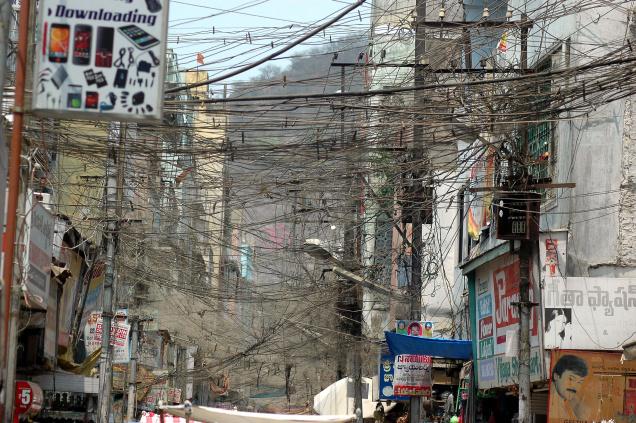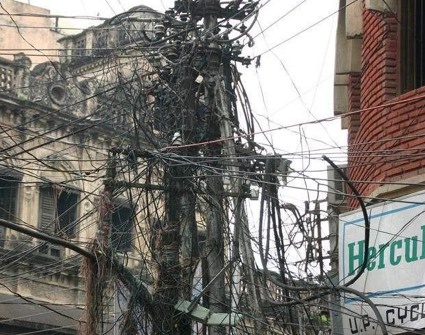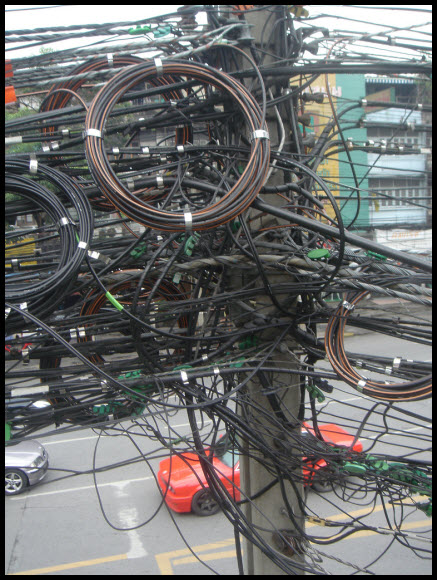It looks like you're using an Ad Blocker.
Please white-list or disable AboveTopSecret.com in your ad-blocking tool.
Thank you.
Some features of ATS will be disabled while you continue to use an ad-blocker.
share:
In calf farms (for meat production) during life time of one calf, so per calf per life time:
1) 2220 KWh (Kilo Watt hour) energy in the form of dung produced, comes in fermentor.
2) Comes out from fermentor (intermediate is BIOGAS):
465 KWh electricity
370 KWh heat
(38%)
3) Heat needed for fermentor it self 320 KWh
(52%)
This is good news! Moreover calfs are sometimes in the meadow too, and sometimes in the cowshed, where the dung actual is collected.
REFERENCE:
www.host.nl...
1) 2220 KWh (Kilo Watt hour) energy in the form of dung produced, comes in fermentor.
2) Comes out from fermentor (intermediate is BIOGAS):
465 KWh electricity
370 KWh heat
(38%)
3) Heat needed for fermentor it self 320 KWh
(52%)
This is good news! Moreover calfs are sometimes in the meadow too, and sometimes in the cowshed, where the dung actual is collected.
REFERENCE:
www.host.nl...
edit on 2017-4-21 by galien8 because: typo
edit on 2017-4-21 by
galien8 because: typo
a reply to: galien8
S/F!! It is good news! I learned recently that landfills are producing natural gas also -- which means maybe "fracking" will become obsolete. We can make our own gas right here on the surface.
Just had new gasline fed through the old leaky 60-year-old pipes in this vintage neighborhood. The tech these guys inserted at the tie-in to the main was fantastic. I learned a LOT observing the whole process, and they were friendly and explained it all to me as they went along.
I'm happy about that! Both of the outlets (to my house and to my neighbors across the street) were under the street immediately at the edge of my yard. Now we have new pipes, updated infrastructure, and the meters that were bad were replaced too (mine was okay, but they painted it, moved it up to the foundation from the curb).
Fossil fuels are going to die with the 21st century. We can stop ruining our planet now.
S/F!! It is good news! I learned recently that landfills are producing natural gas also -- which means maybe "fracking" will become obsolete. We can make our own gas right here on the surface.
Just had new gasline fed through the old leaky 60-year-old pipes in this vintage neighborhood. The tech these guys inserted at the tie-in to the main was fantastic. I learned a LOT observing the whole process, and they were friendly and explained it all to me as they went along.
I'm happy about that! Both of the outlets (to my house and to my neighbors across the street) were under the street immediately at the edge of my yard. Now we have new pipes, updated infrastructure, and the meters that were bad were replaced too (mine was okay, but they painted it, moved it up to the foundation from the curb).
Fossil fuels are going to die with the 21st century. We can stop ruining our planet now.
a reply to: galien8
Bio-flatulence as a fuel source only if you
A. Confine the cattle in a semi-hermetically sealed environment
B. Strap a fart catcher to the ass and mouth of every cow (hint the mouth one won't work out so well)
***NVM just noticed the thread was on dung, not the producer.
Bio-flatulence as a fuel source only if you
A. Confine the cattle in a semi-hermetically sealed environment
B. Strap a fart catcher to the ass and mouth of every cow (hint the mouth one won't work out so well)
***NVM just noticed the thread was on dung, not the producer.
edit on 21-4-2017 by Vector99 because: (no reason given)
originally posted by: galien8
originally posted by: BuzzyWigs
Fossil fuels are going to die with the 21st century. We can stop ruining our planet now.
Actually must die before the half of this century ;-)
Yep, I belabored over whether to limit it to that soon. Perhaps here in the US and other 1st world countries. But places that have ragged sketchy infrastructures will take longer. Like India.




Gallery of similar images from around the world
Electricity power poles in less developed countries and even in thoroughly hi-tech ones! It will take decades to rework all of it away from oil and coal.
edit on 4/21/2017 by BuzzyWigs because: (no reason given)
originally posted by: Vector99
A. Confine the cattle in a semi-hermetically sealed environment
B. Strap a fart catcher to the ass and mouth of every cow (hint the mouth one won't work out so well)
Most of the methane emissions by life stock (indeed the most severe greenhouse gas) comes from spontaneous fermentation of the dung (exposed to the surrounding environment)
originally posted by: BuzzyWigs
Electricity power poles in less developed countries and even in thoroughly hi-tech ones! It will take decades to rework all of it away from oil and coal.
I don't get it!? OK archaic infra structure, but green electricity could also go throught that, right?
a reply to: galien8
And in the case of India, again, they have human feces fermenting all over the place. They don't use toilets. They defecate in the alleys and rivers in broad daylight. It's time for them to have community waste disposal stations and start using their own sewage to power their homes and businesses!
In Denmark, they are recycling urine collected during beer festivals -- using it to fertilize the fields of barley, hops and other grains used in brewing.
Source This clipped from TIME mag, but do a search about it and you'll see all sorts of varying reports -- every one of them implying that urine will be turned into beer. Talk about click-bait reporting!
And in the case of India, again, they have human feces fermenting all over the place. They don't use toilets. They defecate in the alleys and rivers in broad daylight. It's time for them to have community waste disposal stations and start using their own sewage to power their homes and businesses!
In Denmark, they are recycling urine collected during beer festivals -- using it to fertilize the fields of barley, hops and other grains used in brewing.
Roskilde, the largest music festival in Northern Europe, is held every year in Zealand, Denmark, the Guardian reports. This year's 100,000 expected attendees won't just be rocking out to the likes of Florence and the Machine and Pharrell, though. They'll be contributing to an operation called “From Piss to Pilsner.”
“The huge amount of urine produced at festivals was having a negative impact on the environment and the sewage system,” Leif Nielsen from the Danish Agriculture & Food Council (DAFC) said. Now organizers are hoping to use that pee to fertilize barley used to brew beer.
Source This clipped from TIME mag, but do a search about it and you'll see all sorts of varying reports -- every one of them implying that urine will be turned into beer. Talk about click-bait reporting!
originally posted by: galien8
originally posted by: BuzzyWigs
Electricity power poles in less developed countries and even in thoroughly hi-tech ones! It will take decades to rework all of it away from oil and coal.
I don't get it!? OK archaic infra structure, but green electricity could also go throught that, right?
Yes, it could. I just wanted to point out that swapping out the equipment and methods will be a time-consuming thing.
Sorry, not being argumentative....I think it's very cool. But it takes a long long time to overhaul systems.
Most of the methane emissions by life stock comes from spontaneous fermentation of the dung
good , then you won't mind when they put the cow dung plant next door to you...
I don't get it!? OK archaic infra structure, but green electricity could also go throught that
well, atleast you saw through that fallacy....
edit on 21-4-2017 by AttitudeProblem because: (no reason given)
originally posted by: AttitudeProblem
good , then you won't mind when they put the cow dung plant next door to you...
I don't have a backyard, so the "NOT IN MY BACKYARD!!!!" argument is not valid
a reply to: BuzzyWigs
What an eye sore! We really need to have a way to generate electrical energy in the home instead of having all this wire pollution! These wires are exposed to the elements and electricity can easily be disrupted by heavy rain, winter storms and now by terrorists.
I know it was a God send when some power tools came out with rechargeable batteries. No more tripping over extension cords, tangled cords, or cords getting hooked up on things. It sure made construction much more easier!
What an eye sore! We really need to have a way to generate electrical energy in the home instead of having all this wire pollution! These wires are exposed to the elements and electricity can easily be disrupted by heavy rain, winter storms and now by terrorists.
I know it was a God send when some power tools came out with rechargeable batteries. No more tripping over extension cords, tangled cords, or cords getting hooked up on things. It sure made construction much more easier!
a reply to: AttitudeProblem
You ever do any farming or urban gardening? We deal with compost & composted manure all the time. I've even got my own compost set up for my urban garden (my sister has one at her house, too). In other words, don't assume that everyone is squeamish around that stuff.
You ever do any farming or urban gardening? We deal with compost & composted manure all the time. I've even got my own compost set up for my urban garden (my sister has one at her house, too). In other words, don't assume that everyone is squeamish around that stuff.
originally posted by: enlightenedservant
a reply to: galien8
I'm curious about something. What happens to the manure once this process is finished? As in, does the manure become unusable as a fertilizer or is this gas simply a result of the composting process?
Good question, I'm gone find out soon, ideally there would only remain salts (nitrates, sulfates, ammonia salts, phosphate salts) maybe good for fertilizers, don't know yet, would be funny if they purify (by fractioned crystalizations) every individual salt chemical compound. So every C atom in the manure turned into CH4 (methane).
Biogas factory, would then also be an anorganic fine chemicals factory ;-)
originally posted by: enlightenedservant
a reply to: AttitudeProblem
You ever do any farming or urban gardening? We deal with compost & composted manure all the time. I've even got my own compost set up for my urban garden (my sister has one at her house, too). In other words, don't assume that everyone is squeamish around that stuff.
Today I made my own mulch out of a leaf layer I've been growing for 10 years....raked it out from between the privet plants and put it in a big pile. Removed larger sticks, deadwood, and debris. Then spread it out by walking on it.....like the idea of crushing grapes.
Home-made mulch. Who'da thunk! It's like when they finally "discovered" that breast milk was BEST for baby, and formula was relegated to second choice.
Think about how much industrial stuff would be made unnecessary if people took the time to learn about eco-farming or gardening or property management.
I don't use chemicals at all on my property. It's all just cooperative with what the forest wants to do.....and all the other critters sharing the space.
originally posted by: enlightenedservant
a reply to: AttitudeProblem
You ever do any farming or urban gardening? We deal with compost & composted manure all the time. I've even got my own compost set up for my urban garden (my sister has one at her house, too). In other words, don't assume that everyone is squeamish around that stuff.
When I was a kid, at my grandparent's house there was a barrel in the backyard for burning stuff --- the kind they show in back alleys on tv dramas where hobos hang out. There was also a compost bin. I do what I can to recycle our consumed plastic, aluminum, paper, and metal debris. I toss kitchen clippings from veggies outside. A couple of years ago I threw a potato into a dedicated compost/veg garden we'd created....the next year POTATOES GREW THERE!
It's not hard - it's just time consuming. Sometimes, though, I love being a mere peasant.
of course it is.
originally posted by: missed_gear
a reply to: BuzzyWigs
Eco farming is a practice and has been for ever.
Unfortunately, too many people nowadays are utterly untrained in doing it. They hire others to do their landscaping, or buy their own mulch after killing all the natural plants in their way. They rip out ground cover that maintains itself and replace it with high-maintenance grass. They try to grow exotics in places that are utterly inappropriate. They spend billions on fertilizer, seed, pesticides, fungicides, and the delivery of those things.....they water and fret and pamper and nurture their newborn lawns only to have to mow every week and start all over again.
And so lawn tractors get made. And gas is sold to power those mowers. And tillers and chainsaws and whatall. It's a vicious cycle.
At my place, there are no chemicals. There are no pest-control poisons. No weed-killers. No grass seed or fertilizer. I harvest perennials from my mom's mature garden that are appropriate for my climate and terrain. I use mechanical equipment as often as possible. I'm nearing a point of maintenance-free landscaping in a wooded area.
My house is free of pests - because they are allowed to live in their natural habitats OUTSIDE.
Ants. Snakes. Worms. "Weeds" like Creeping Charlie and wild violets and clover and moss.
Trying to force moss to grow in a desert, or an exotic tropical plant in the temperate woodlands, is a useless and very expensive obsession.
Using wildflowers, natural trees and flora, ground covers that thrive in the area, etc.....THAT is what makes sense. Yesterday I was collecting my reclaimed oak boards to start cleaning them, a honeybee landed on one of them.
That was cool. I don't have to worry about anyone walking on the lawn. Or my pets eating fertilizer pellets or rolling in RoundUp.
edit on
4/21/2017 by BuzzyWigs because: (no reason given)
new topics
-
Inca stone masonry at Sacsayhuaman, Ollantaytambo and the Sun Temple
Ancient & Lost Civilizations: 2 hours ago -
President-Elect TRUMP Picks Former Florida A.G. PAM BONDI to be U.S. Attorney General.
2024 Elections: 6 hours ago -
A Mysterious Orb filmed over NYC by local news
Aliens and UFOs: 7 hours ago -
Putin will warn civilians in targeted areas
World War Three: 8 hours ago -
The Popular Vote does not matter
Political Issues: 10 hours ago
top topics
-
International Criminal Court Issues Arrest Warrant For Netanyahu
Mainstream News: 16 hours ago, 13 flags -
President-Elect TRUMP Picks Former Florida A.G. PAM BONDI to be U.S. Attorney General.
2024 Elections: 6 hours ago, 12 flags -
Gaetz withdraws from attorney general consideration
US Political Madness: 13 hours ago, 12 flags -
Is Russia Using a New Type of Beam Weapon Against Ukraine?
Weaponry: 14 hours ago, 11 flags -
Putin will warn civilians in targeted areas
World War Three: 8 hours ago, 11 flags -
The Popular Vote does not matter
Political Issues: 10 hours ago, 8 flags -
Bridgewater Triangle
General Chit Chat: 13 hours ago, 7 flags -
Here is why Western leaders in NATO have zero fear of nuclear warfare. At all. Zero.
World War Three: 16 hours ago, 6 flags -
A Mysterious Orb filmed over NYC by local news
Aliens and UFOs: 7 hours ago, 4 flags -
Inca stone masonry at Sacsayhuaman, Ollantaytambo and the Sun Temple
Ancient & Lost Civilizations: 2 hours ago, 1 flags
active topics
-
Inca stone masonry at Sacsayhuaman, Ollantaytambo and the Sun Temple
Ancient & Lost Civilizations • 1 • : randomtangentsrme -
International Criminal Court Issues Arrest Warrant For Netanyahu
Mainstream News • 39 • : JJproductions -
Is Russia Using a New Type of Beam Weapon Against Ukraine?
Weaponry • 19 • : KrustyKrab -
Well, here we go red lines crossed Biden gives the go ahead to use long range missiles
World War Three • 320 • : Tolkien -
FEMA Head Admits Agency Skipped 20 Homes with Trump Signs
Mainstream News • 18 • : EyeoftheHurricane -
Biden at 81: Often sharp and focused but sometimes confused and forgetful
2024 Elections • 12 • : WeMustCare -
A Mysterious Orb filmed over NYC by local news
Aliens and UFOs • 4 • : EduardoLopez -
Well we know Putins ICBMs won't fail in their silos
World War Three • 120 • : yuppa -
Putin will warn civilians in targeted areas
World War Three • 31 • : KrustyKrab -
-@TH3WH17ERABB17- -Q- ---TIME TO SHOW THE WORLD--- -Part- --44--
Dissecting Disinformation • 3343 • : 777Vader
